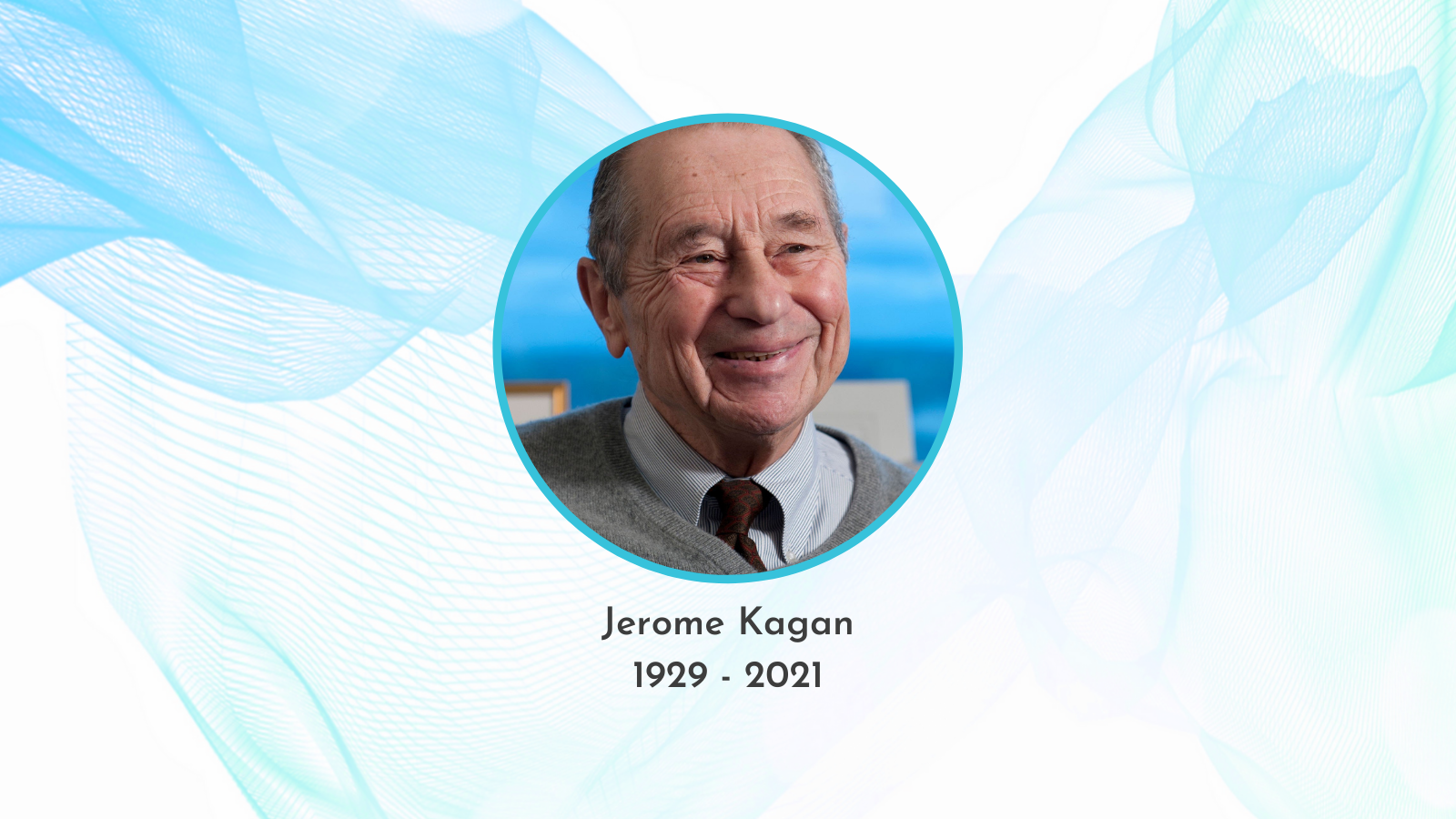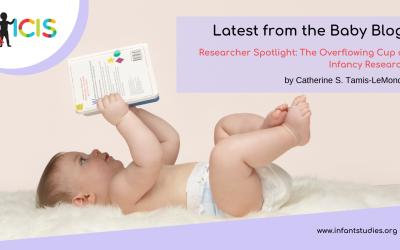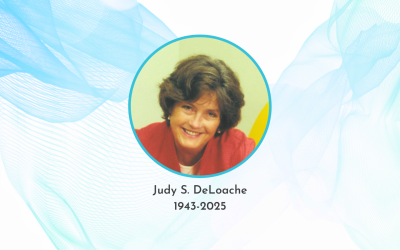Jerome Kagan passed away on Monday, May 10, 2021. He was 92 years old.
Jerry was born in Newark, New Jersey and grew up in Rahway. He received his BA from Rutgers University before obtaining his PhD from Yale where he studied with Frank Beach. He then joined the Fels Research Institute in Yellow Springs, Ohio where his significant longitudinal research that produced Birth to Maturity was published in 1962. He then accepted an offer from Harvard University to assist in establishing its program in human development. There, he was named the Daniel and Amy Starch Research Professor of Psychology. Over a 60-year career, Jerry used his keen insight and endless imagination to capture the nuances of children’s lives across time and context. A voracious reader, his bookshelves were filled with volumes on biology, physics, philosophy, history, language, neuroscience, poetry, and biography. He believed that psychology was a “young science” and that researchers should adopt a biologist’s eye to describing and understanding behavior.
Jerry had a long and distinguished academic career, as a pioneer in the fields of infant studies, particularly emotional and moral development. He may be best known for his work on temperament, providing the first descriptions of Behavioral Inhibition and linking the biology of this temperament trait to then current work on the neuroscience of fear and anxiety. Among his numerous awards are the Hofheimer Prize from the American Psychiatric Association and the G. Stanley Hall Award from the American Psychological Association in 1985.
Jerry was a prolific author with hundreds of publications and numerous books. Indeed, his last volume was published this year, A Trio of Pursuits: Puzzles in Human Development (2021).
Above all, Jerry always had a boundless enthusiasm for science and never lost his fascination with the world around him. He was known for the unexpected email expounding on a recent paper, quizzing an author’s inexact formulation of a construct, or sending a hearty congratulations. He considered the scientific enterprise the source of life’s excitement. As his many students remember, you would walk into his office and he would boom out, “What did you discover today?!” and you never wished to disappoint.
He is survived by his daughter Janet, grand-daughter Leah and her husband Jon, and his great-grandson James. His wife of 70 years, Cele, passed away in 2020.
Contributed by
Nathan Fox
University of Maryland
Koraly Pérez-Edgar
The Pennsylvania State University




